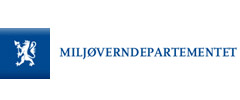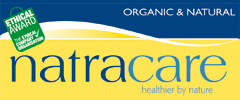Canada, the first country to classify bisphenol A as risky
Health Canada adds bisphenol A to list of toxic substances
18.10.2008 |By Martin Mittelstaedt, Environment Reporter
The federal government has decided to add bisphenol A to the country's list of toxic substances, a move that is likely to renew attention on the widespread use of the controversial chemical in almost all food cans sold in Canada.
The toxic determination, issued in today's Canada Gazette, makes Canada the first country to classify as risky bisphenol A, the chemical building block for polycarbonate plastic and epoxy resins.
The government took the action based on worries that infants up to the age of 18 months might be inadvertently getting too much of the chemical, which mimics the hormone estrogen, from baby formula cans and plastic baby bottles, as well concerns that fish and other wildlife could be harmed from environmental exposure.
The federal statement didn't raise concerns over adult exposure.
Placing bisphenol A, or BPA as it is known, on the dangerous substance list gives the government the authority to make regulations to cut exposures. Specific measures will be issued later today, but Health Canada said earlier this year that it would end the sale of polycarbonate plastic baby bottles, and support infant formula makers in switching to different packaging.
Environmentalists praised these actions, but say more needs to be done. Some scientists also say Health Canada may have erred in dismissing risks to adults.
"The Canadian government remains the only national government in the world to take decisive action against bisphenol A. That has been noticed around the world," said Rick Smith, executive director of Environmental Defence.
But the advocacy group wants a ban on BPA in cans. "That's where this government now needs to go," Mr. Smith said.
BPA is used in the epoxy resins on the inside linings of almost all food, beer and pop cans. The material is added to prevent bacterial contamination and lengthen shelf lives, but can seep into contents.
Bisphenol A's shape allows it to mimic estrogen, prompting fears that it can disrupt biological processes choreographed by the female hormone. Based on population testing, it is likely that about 95 per cent of Canadians carry detectible levels of BPA.
The trade group representing bisphenol A makers, the American Chemistry Council in Arlington, Va., could not be reached yesterday for comment, but in the past has pointed to other regulators that back the chemical.
Neither the European Food Safety Authority nor the U.S. Food and Drug Administration considers BPA a risk, although the Canadian action will likely put pressure on them to review their assessments.
The biggest impact of the toxic designation is going to be on infant formula makers and their can suppliers. Health Canada proposed earlier this year that they reduce the rate at which BPA migrates from containers into the baby food, and find alternative packaging.
Health Canada tested 21 cans of liquid formula last year and detected BPA in every sample, ranging from 2 parts per billion to 10 ppb.
Although these are minute amounts - a part per billion is the equivalent of one second in about 32 years of elapsed time - the concentrations are around a thousand times higher than natural levels of estrogen in people.
None of the major infant formula makers has figured out a way to cut BPA seepage from their liquid formula cans, according to interviews with company officials, although the industry has begun working with can makers to review new packaging.
"We're looking at alternatives now and keeping [Health Canada] informed at every step of the way," said Gail Wood, spokeswoman for Evansville, Ind.-based Mead Johnson, which sells several brands of infant formula in Canada.
Removing BPA may take some time because the industry wants to be certain any replacements are safer. As well, there are complications due to Canada and the United States having different regulatory requirements. Much of the infant formula sold in Canada is made in the United States, where the FDA doesn't believe BPA poses a risk and would have to approve new packaging.
Ms. Wood said her company initially estimated that it would take five to seven years to find replacements, but she said "it's not going to be that long."
While Health Canada has concluded the chemical isn't a hazard to adults, that position has been undermined by research issued after the government began its assessment.
A study in the influential Journal of the American Medical Association last month linked bisphenol A to heart disease, diabetes, and liver abnormalities in adults. Earlier this month, a study from the University of Cincinnati found that BPA interferes with chemotherapy used to treat breast cancer, raising the possibility the chemical undermines the efficacy of cancer-fighting drugs.
"I think the new round of data that have come out over the past six months that focus on the effects on adults needs serious visitation," said Pete Myers, chief scientist at Environmental Health Sciences, a non-profit, public health organization based in Charlottesville, Va.
Martin Mittelstaedt - Environment Reporter
Related News
Meet the Winners of the Gender Just Climate Solutions Award at COP24
On the 70th anniversary of the Universal Declaration of Human Rights, we awarded Gender Just Climate Solutions Winners at the climate negotiations in Katowice, Poland
11.12.2018
Invitation: Gender Just Climate Solutions Award 2018
10 December, COP24 Katowice
04.12.2018
Getting to the Future We Want
4-7 November, Brussels: European Environmental Bureauís (EEB) Annual Conference
12.11.2018
GoodFood4All
WECF and partners all over Europe start GoodFood4All Campaign
06.11.2018
#Ruralwomen: join our Women2030 campaign!
15.10.2018





































